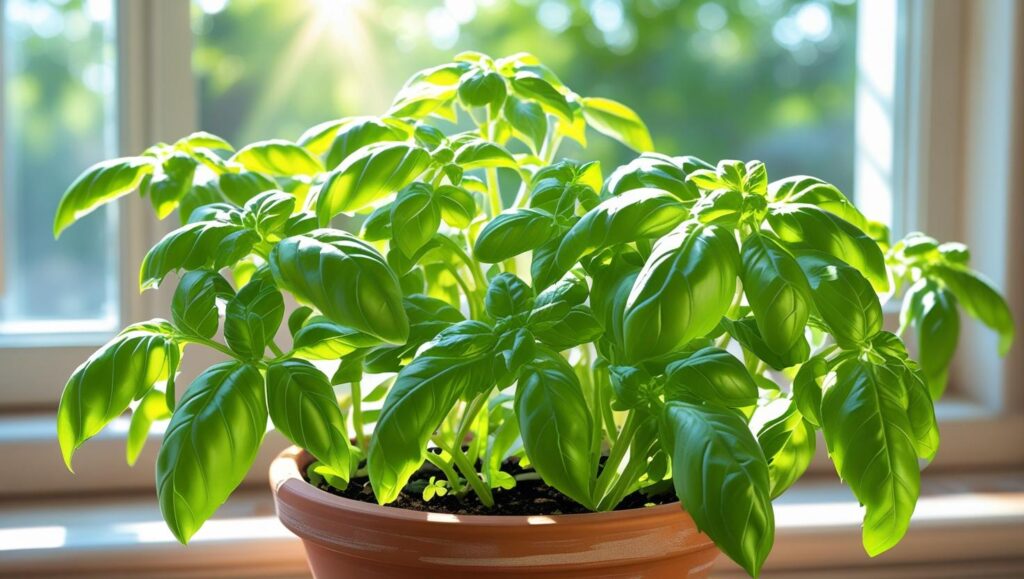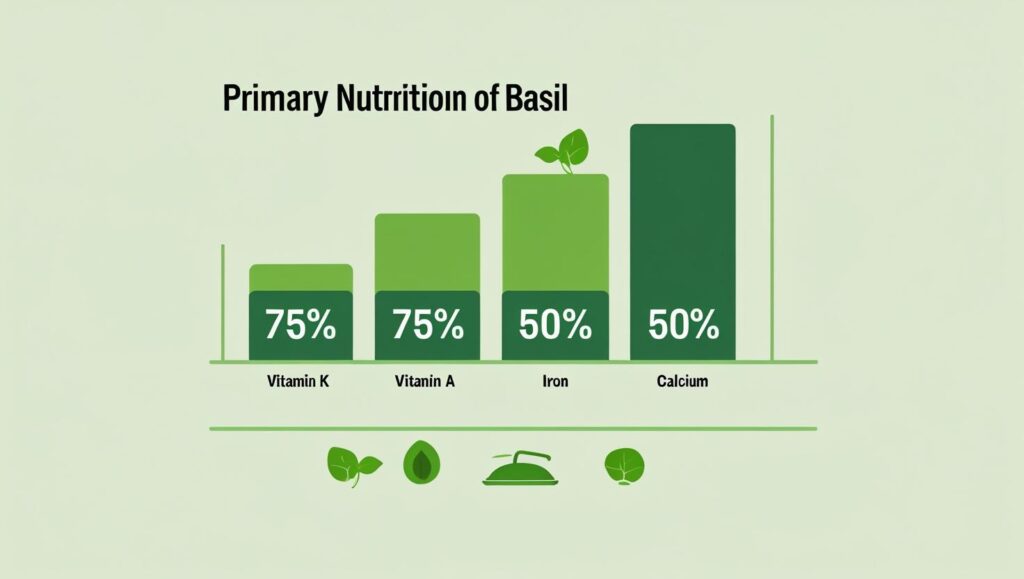Long celebrated for its aromatic contribution to global cuisines, the simple act of growing basil at home is gaining recognition for a host of benefits that extend far beyond the kitchen. From significant nutritional advantages and measurable cost savings to enhanced mental well-being, cultivating this popular herb provides a range of returns that experts say are both practical and profound.

Growing Basil at Home
| Key Benefit | Detail |
| Nutritional Boost | Fresh basil is a potent source of Vitamin K, essential for blood clotting and bone health. Just two tablespoons provide a significant portion of the daily recommended value. |
| Economic Savings | For the cost of a single seed packet, a home gardener can produce a continuous supply of basil, often yielding more than dozens of store-bought bunches over a season. |
| Psychological Well-being | Interacting with indoor plants, including basil, has been shown to reduce physiological and psychological stress, promoting a sense of calm and focus. |
| Environmental Impact | Homegrown herbs eliminate the plastic packaging and reduce the “food miles” and carbon footprint associated with transporting produce to supermarkets. |
As households worldwide seek ways to improve their health, manage budgets, and adopt more sustainable practices, the humble basil plant has emerged as a surprisingly effective tool. Experts in nutrition, horticulture, and psychology point to the clear and accessible advantages of home cultivation, positioning it as more than just a culinary hobby. The top benefits of growing basil at home encompass a triad of wellness: improved nutrition, tangible economic gains, and a notable boost to mental health.
The Culinary and Nutritional Advantages of Fresh Basil
The most immediate benefit of having a live basil plant is access to fresh basil, which offers a flavor profile that culinary experts argue is far superior to its dried counterpart. The aromatic oils in fresh leaves are volatile and degrade quickly after harvesting and during the drying process.
“Fresh herbs add a brightness, texture, and finishing touch to some dishes that can’t be replicated with dried herbs,” explains a report in Real Simple. “Delicate leafy herbs—basil, parsley, tarragon, dill, cilantro—lose much of their flavor when dried, so opt for fresh if you can.”
Beyond its vibrant taste, fresh basil is a powerhouse of nutrients. According to the U.S. Department of Agriculture (USDA) food composition database, it is exceptionally rich in Vitamin K, which is crucial for blood clotting and bone health. An analysis from the Cleveland Clinic highlights that basil is also a significant source of antioxidants, such as beta-carotene and lutein, which combat oxidative stress and cellular damage in the body.
“Basil contains nutrients and compounds that can help stave off chronic diseases, including cancer, diabetes, heart disease and arthritis,” said registered dietitian Gillian Culbertson in a statement to the Cleveland Clinic. She notes that many of these beneficial compounds are most potent in fresh leaves.

Economic and Environmental Gains
While a plastic clamshell of fresh basil from a grocery store can be costly and perishable, growing basil at home presents a more economical and sustainable alternative. The initial investment in seeds or a small starter plant is minimal compared to the recurring cost of purchasing cut herbs.
“On paper, growing herbs from seeds appears to be a no-brainer way to save money,” according to an analysis by Better Homes & Gardens. “For the price of one bunch of fresh parsley at the store, you can often buy a seed packet that yields dozens—even hundreds—of plants.”
This practice also yields significant environmental benefits. The average meal travels approximately 1,500 miles from farm to consumer, a journey that consumes fuel and generates carbon emissions, reports the Fredericksburg Regional Food Bank. Growing basil on a windowsill eliminates these food miles. Furthermore, it cuts down on single-use plastic packaging, a major contributor to landfill waste. This makes home gardening a direct and personal way to engage in sustainable living.
The Psychological Boost of a Home Garden
Perhaps the most compelling modern argument for growing basil lies in its impact on mental wellness. A growing body of research confirms that interacting with plants can have a profound calming effect on the human mind. A 2015 study published in the Journal of Physiological Anthropology found that actively engaging with indoor plants can reduce both physiological and psychological stress.
Participants in the study who were tasked with repotting a plant showed a decrease in blood pressure and reported feeling more “comfortable, soothed, and natural” than a group assigned a short computer task. Experts believe these benefits stem from humanity’s innate connection to nature, a concept known as biophilia.
“Gardening reminds us of our connection to nature, and helps us focus on the “bigger picture,” which can alleviate symptoms of depression,” states a report from Hillside Atlanta, a mental health organization. Even the simple act of caring for a plant and watching it grow can foster a sense of accomplishment and purpose.
The accessibility of basil makes it an ideal starting point for aspiring home gardeners. Unlike many other food plants, it can thrive in a small pot with adequate sunlight and water, making it suitable for apartment dwellers and those without outdoor space.
As Dr. Charlie Hall, a professor of horticultural sciences at Texas A&M University, often notes in his analysis of the industry, the non-monetary benefits of gardening—such as improved quality of life, health, and well-being—frequently outweigh the financial returns. Growing basil at home, it seems, is a small investment that pays dividends in flavor, health, and happiness.
How Advanced Gardening Techniques Are Transforming Home Horticulture
